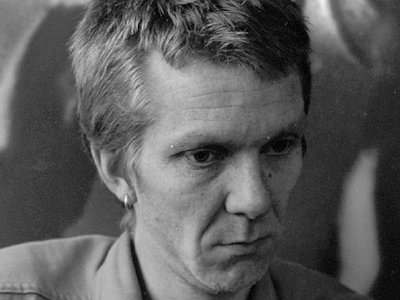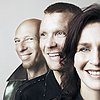When did you start playing your instrument, and what or who were your early passions or influences?
I started playing the electronic organ when I was 9 years old, and I soon knew that music was the thing for me. At the age of 12 I started playing the piano and a year after that I also started playing the church organ. At that time I took lessons in classical music, playing some blues with my elder brother at home. It wasn't until I was 16 or 17 that I discovered jazz and the jazz-rock group Weather Report, and I was totally blown away. So for a long time, Joe Zawinul (the keyboard player in WR) and Jimmy Smith were my main influences and passion, and then I really got interested in electronic instruments (synths and Hammond organ).
What do you personally consider to be the incisive moments in your artistic work and/or career?
There has been and still are moments that are vital for my artistic development and direction. But I can mention a few that I had in my early years: The first time I heard the sound of a real Hammond B3 live (I was mesmerized by the sound of this instrument, and still am). Another one is when I heard a tune by Weather Report for the first time, I was instantly hooked. By the way the tune I heard was 'Pearl on the half shell' from the album Sportin' Life.
Keith Rowe once asserted that it is often certain people that “give one permission to do things”. How was that for you – in which way did the work of particular artists before you “allow” you to take decisions which were vital for your creative development?
For me that was quite important. Being a huge fan of Mr. Zawinul at that time, gave me "permission" to use old analog synths as my main instrument in jazz and improvised music. And that was in the 80s, when the synthesiser was all about sampling and "workstations". Dragging around 150 kg of old synths was kind of weird to many. My interest in WR and other great bands and artists in the 70s - both jazz and also rock bands - gave me the open minded approach to music that I, to this day, think is the most important aspect of my career. I try to find inspiration from a variety of music and strive to get a voice of my own that isn't locked to any genres or styles.
What are currently your main artistic challenges?
First, there is the always ongoing development of my musical expression; finding new sounds, finding new ways of playing, writing new music and rehearsing.
Second, I recently bought a system called Kyma, that is a really powerful audio processing system which allows you to do virtually anything you want with an audio signal; making your own effects, synths and so on). It's really complex, so it will take quite some time to unleash its full potential. But I like working with it a lot.
What do improvisation and composition mean to you and what, to you, are their respective merits?
Improvisation for me is instant composing, arranging and playing at once. Composing music gives you the ability to think twice, improvisation doesn't. At the same time I have for a long, long time worked to get rid of these differences, trying to achieve the same creative flow for both. One way of doing this when you are composing, is to use improvisation as a tool, for instance improvise and record it.
How important are practising and instrumental technique for achieving your musical goals?
All these go hand in hand. You can make great music without being a virtuoso and you can make bad music being a virtuoso and vice versa. But I think you have to practise to get the technique you need for achieving your goals, and maybe more important, always aim for other goals. And at the same time the technique, or lack of it, can also dictate your musical goals, and in the worst case scenario, stall your musical evolution.
How do you see the relationship between sound, space and performance?
I think they are vital elements for what the music will end up being, and they are certainly parameters that will control or form the musical end result.
Derek Bailey defined improvising as the search for material which is endlessly transformable. Regardless of whether or not you agree with his perspective, what kind of materials have turned out to be particularly transformable and stimulating for you?
Free improvised music with no boundaries and other music where you can act on intuition, is the most stimulating for me in this respect. Supersilent is the band where I feel most at home regarding this.



